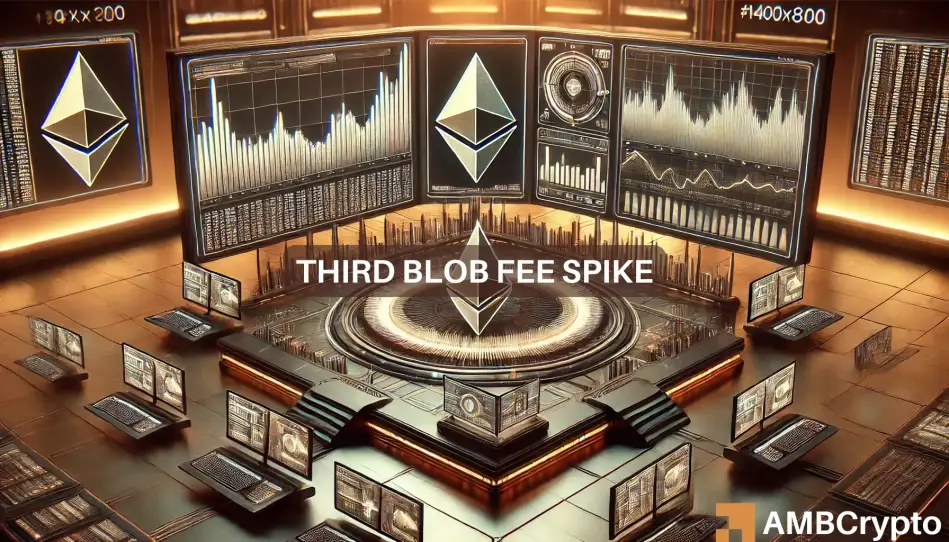Following the implementation of Blobs in the Dencun upgrade, Ethereum [ETH] transaction fees experienced a notable decrease, leading to reduced costs on Layer 2 (L2) networks.
However, recent activities have triggered a rise in Blob fees, primarily attributed to the distribution of a new token from an L2 network airdrop.
Price Spike in Ethereum L2 Blob Fees
Data sourced from Dune Analytics reveals a significant surge in Blob fees on October 22nd, surpassing $4. This marks the third major increase post the Dencun upgrade.
The fee escalation was a result of the airdrop for the Ethereum L2 network’s Scroll token, which disbursed its governance token, SCR, to users, causing a temporary surge in network activities.
The introduction of Blobs through the Dencun upgrade aimed to decrease transaction expenses on Ethereum’s L2 networks.
By implementing blobs and proto-danksharding, transaction fees on Ethereum L2s significantly reduced as more transactions shifted from the Ethereum mainnet to these secondary layers.
Implications of the Fee Surge for L2 Networks
Though the spike in Blob fees was driven by temporary congestion due to the airdrop, it underscored how such events can still instigate volatility in transaction costs.
This incident marks the third instance of significant Blob fee hikes since their introduction. Nevertheless, despite occasional spikes, Ethereum’s L2s consistently offer lower fees compared to the mainnet.
The Dencun upgrade, focusing on cost reduction through Blobs, has predominantly succeeded in keeping Ethereum L2 fees economical.
This recent surge serves as an anomaly, primarily influenced by the heightened network activity associated with the Scroll token airdrop.
Trends in Ethereum Transaction Fees
Despite the transient spike in Blob fees, Ethereum’s transaction costs have generally maintained a low profile post the Dencun upgrade. The fees have reduced, especially with the migration of more transactions to L2s.
Data from Crypto Fees reveals that the average daily fee in the past week stood around $6.7 million, while the 24-hour fee was approximately $5.4 million.
While the Blob fee surge illustrates that congestion may emerge during significant network events, Ethereum’s persistent focus on cost minimization continues to benefit users, ensuring lower transaction fees on the whole.

